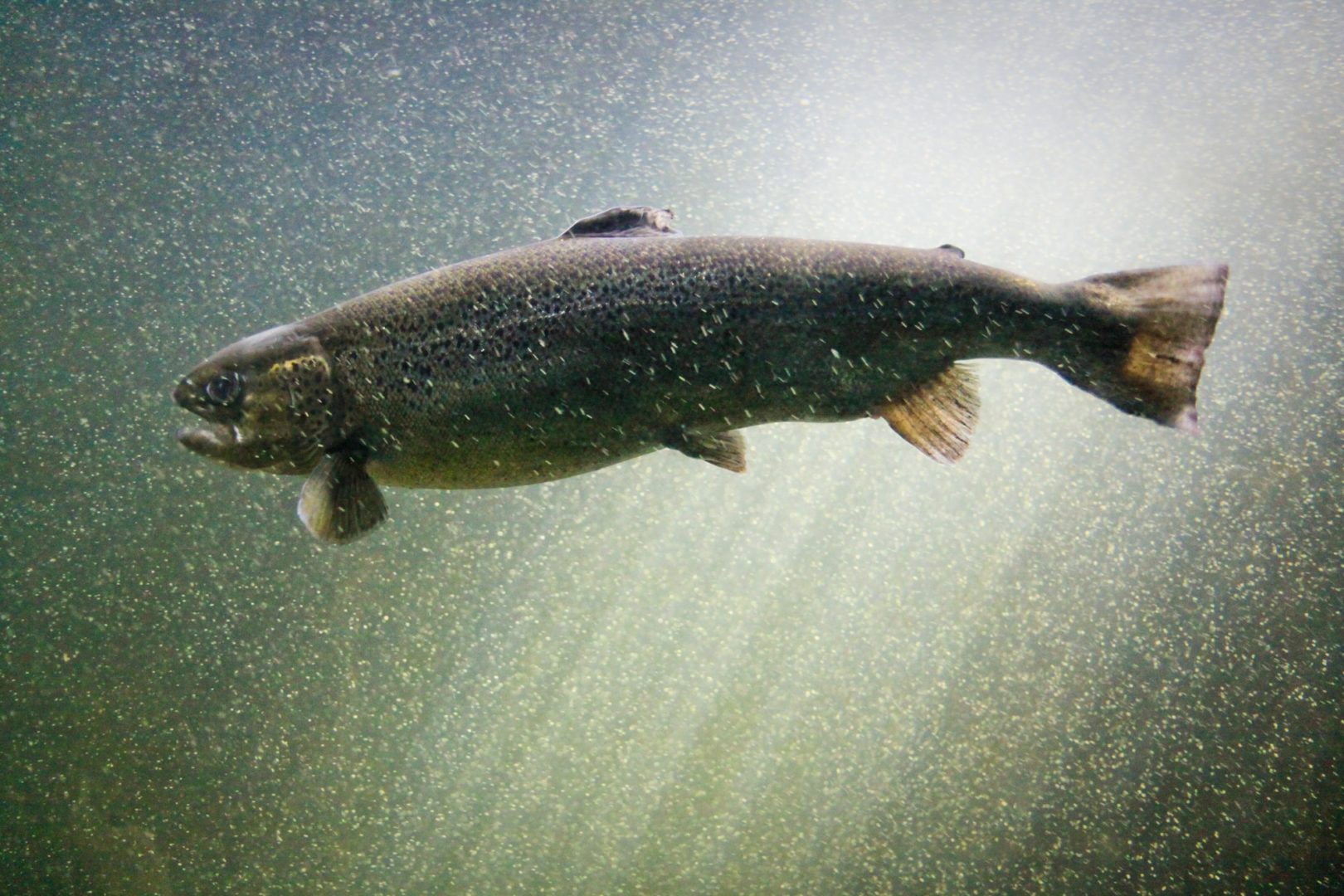Unregulated hatchery expansion could devastate wild salmon populations
St John’s, November 6, 2019 – Ecojustice, acting on behalf grassroots groups and individuals concerned about the health of wild Atlantic salmon stocks, is headed to court today to ensure the Indian Head Hatchery Expansion Project receives a proper environmental assessment. The groups asked for a judicial review after the Minister of Municipal Affairs and the Environment unlawfully released the hatchery from further environmental assessment.
The case will be heard by the Supreme Court of Newfoundland and Labrador in St. John’s on November 6-7, 2019, starting at 10am. Ecojustice lawyers are representing the Salmonid Association of Eastern Newfoundland, the Freshwater-Alexander Bays Ecosystem Corporation, the Port Au Port Bay Fishery Committee, Alan Pickersgill, John Baird and Wayne Holloway.
The expansion to the Stephenville facility, owned by Mowi and which provides smolt to Northern Harvest Sea Farms, poses a threat to the last of Canada’s healthy wild Atlantic salmon populations, and could further stress wild salmon populations already in decline. The environment assessment for the Indian Head Hatchery Expansion was scoped to exclude the project’s marine portion — that is, the addition of 2.2 million salmon smolt to open net pens on Newfoundland’s south coast.
These kinds of regulatory shortcuts could have devastating effects on populations of wild Atlantic salmon in Newfoundland and Labrador. After the recent mass die-off event at Northern Harvest killed millions of fish and polluted Fortune Bay, it is clear that poorly regulated fish farm operations can also create an environmental mess.
When farmed salmon escape, they can mate with wild Atlantic salmon and disrupt the genetic stock of a population that is already assessed as threatened. They are also at risk of the transfer of disease and sea lice.
Sarah McDonald, Ecojustice lawyer said:
“Ecojustice is going to court today on behalf of our clients to close glaring loopholes in Newfoundland and Labrador’s aquaculture policy.
“The way the Province conducts environmental assessments for fish farming projects facilitates a shell game by the aquaculture industry. The Province says it doesn’t require an environmental assessment for the marine portion of the Indian Head Hatchery Expansion Project because the smolt will go to existing open net pen sites – but at the same time, the Province is well aware that Mowi is applying for over a dozen new sites that also won’t require an environmental assessment because Mowi says they will be stocked with smolt from out of Province. Essentially, the Province is allowing open net pen salmon farming, an industry with well-recognized environmental impacts, to completely avoid environmental scrutiny.
“At a bare minimum, the Province is required by law to assess the marine portion of the Indian Head Hatchery Expansion Project.”
John Baird, President of the Freshwater-Alexander Bays Ecosystem Corporation, said:
“Those of us taking the Minister to court today are not opposed to salmon farming. But developing this industry cannot be at the cost of destroying our wild Atlantic salmon. And that’s only one of the environmental sacrifices likely to occur. Impacts on other species such as lobster mean there could be a significant economic cost as well.
“The reassurances we hear all the time that this industry is environmentally safe certainly ring hollow every time there is a fresh escape, a disease outbreak, and now the die-off of 2.6 million farmed salmon.
“We shouldn’t have had to resort to court action to force government to respect the laws of the land and its obligation to protect the environment. Yet here we are today.”
Key Facts:
- Escape from fish farms are not uncommon and it’s very hard to get fish back once they escape. For example, 1,000 salmon escaped from a Cooke Aquaculture site in the Bay of Fundy in Aug 2019.
- In October 2019, a mass salmon die-off in NL at Northern Harvest Sea Farms, owned by Mowi, resulted in millions of pounds of dead fish polluting the ocean and shorelines around Fortune Bay. Warmer waters, containing less oxygen, are thought to have caused the fish to suffocate.
- Wild Atlantic salmon populations returning to Newfoundland’s rivers have declined 45 per cent since 2015, according to an Atlantic Salmon Federation report in June 2018. Many factors, including warming waters due to climate change, are thought to be contributing to the decline
About
Ecojustice, Canada’s largest environmental law charity, goes to court and uses the power of the law to defend nature, combat climate change, and fight for a healthy environment for all.

